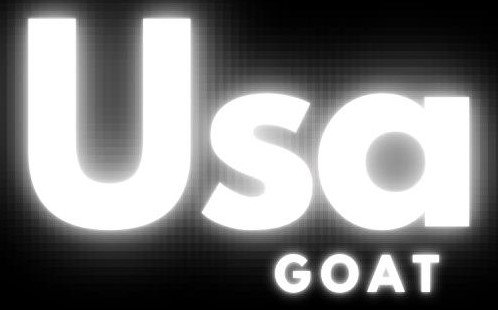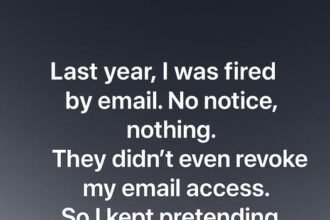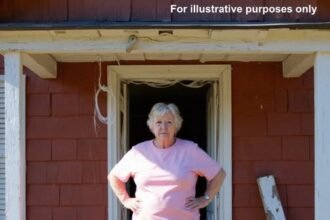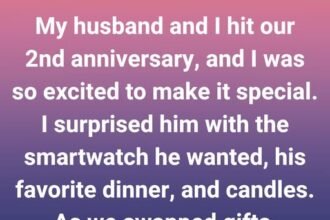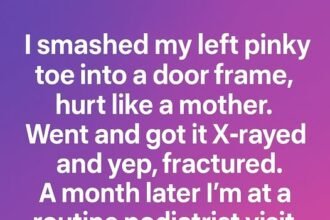Jake sprawled on the couch, wearing the smirk of a guaranteed win. The line was drawn right there, chalk through our living room. I stepped over it and kept walking.
They wouldn’t pay tuition. I worked—coffee shops, hardware, wedding videography—until my feet ached like I’d paced the state. I called home because that’s what sons do.
I texted links into the void. Sometimes Dad wrote Good job. Mom wrote I’ll try to find time.
Jake wrote nothing. I learned film the way you learn a city—by getting lost until the streets arrange themselves under your feet. In New York I PA’d for a documentary house: coffee runs, permits, releases, gear that cost more than my rent and weighed about the same.
Everyone starts somewhere, my supervisor said whenever I looked wrung out. Somewhere can feel like nowhere when your phone buzzes with Jake’s victory photos and your own achievements look like crumpled receipts. The pivot walked in wearing a red scarf and an expression that said she’d seen everything and still believed in work.
Sarah Winters—clear‑eyed, allergic to nonsense—guest‑directed a project and I drew the assistant straw. Some directors treat PAs like furniture that moves itself. Sarah asked what I was trying to say.
Technical skills can be taught, she said over a stabbed‑apart salad. Perspective comes from living. I showed her interviews I’d shot with our building’s maintenance crew about immigration and belonging.
She looked up like she’d heard the first measures of a favorite song. Keep going. Don’t wait for permission.
With Sarah’s mentorship—and the kind of honesty that sands you down to who you are—my voice sharpened. I quit the steady job to chase a story that wouldn’t leave me alone: a Bronx community center being shuttered for luxury apartments. Displacement wrapped in marketing language.
People reduced to line items. I called the film Cornerstones and spent eighteen months with Miss Diaz, seventy and steel‑spined; Mr. Vasquez, who returned to an empty locker and a dumpster; teenagers whose gym key was a lifeline; caseworkers who knew every first name and wound.
Everything broke at least once: cameras, hard drives, trust, my heart. The lowest night was a too‑bright parking lot and the open trunk of my car—empty. A week of footage gone.
I called Rachel—my girlfriend, my anchor, a graphic designer who could make mercy into a layout—because there was no one else to call. I can’t do this anymore, I said. I’m not cut out for it.
Come home, she said. We’ll figure it out. By morning she’d launched a crowdfunding page while I slept on the couch.
Friends gave ten bucks and then ten more. Former classmates wrote paragraphs about why the story mattered. A community organizer sent twenty with a note: Don’t stop.
I cried like I hadn’t in years. Then I borrowed a camera and went back. Cornerstones hit festivals I used to attend as the kid adjusting someone else’s mic.
At the Urban Documentary Film Festival—the place where careers get their passports stamped—it screened to a room that listened so hard I could hear the tick of a loose exit sign. A streamer asked about rights. Critics wrote the kind of sentences I’d cut out in college and tape above my desk.
Sarah squeezed my shoulder: You arrived. Then the email. Dear Mr.
Douglas Franklin… finalist for the Impact Documentary Award. I checked the sender twice, reread it three times, then called Rachel with hands that wouldn’t stop shaking. You did it, she said, in the tone of someone who believed first and hardest.
I told myself the nomination was enough. Then the eleven‑year‑old with a camcorder whispered what if they came this time? I wrestled with that voice for a week.
Finally I opened the family chat, typed carefully, and sent: My documentary, Cornerstones, has been nominated for the Impact Documentary Award at the Urban Documentary Film Festival. Ceremony Friday, 7 p.m., Lincoln Center. It would mean a lot if you came.
I can help with travel and hotel. Twenty minutes later Jake offered the concert excuse. Mom warned me not to guilt them.
Dad: silence. I wrote all right and put the phone face‑down like it might burn me. Rachel came home with champagne and takeout.
I showed her the thread. Concert tickets, she said, mouth flattening. And your mom—
It’s fine, I lied.
It’s not, she said. But I’m here. Sarah’s there.
Your people are there. Ceremony day arrived with rain polishing the sidewalks into mirrors. Rachel had a tailored charcoal suit waiting—she’d measured my shirts while I slept.
Sarah called: Breathe. The nomination is the win; the trophy is gravy. Lincoln Center glowed like it had been scrubbed just for us.
Modest red carpet, a small crowd that knew our names. A Cornerstones poster on the lobby wall—Miss Diaz with arms crossed like a human bridge. Our table near the front.
Rachel’s hand warm in mine. Sarah and her husband like bookends. A producer I’d studied in college told me the Mr.
Vasquez scene hadn’t left her since she watched it. I said thank you and tried to remember how to respirate. The host—beloved because he makes it about films, not himself—talked about true stories being the spines we stand up with.
Awards flowed. When the Impact category arrived, clips filled the screen. When Cornerstones came up, a hush pooled.
I heard my name and didn’t recognize it because my heart was in my throat, blocking the doorway. And the Impact Documentary Award goes to—
They always pause like that, cruelty disguised as drama. Then: Cornerstones, directed by Douglas Franklin.
Rachel screamed. Sarah pounded the table and whooped. I stood because Rachel pushed me.
The walk to the stage was a corridor of hands and faces I admired lifting like buoys in a tide. The trophy—glass shaped like a ripple, because story is a stone—was heavier than it looked. I unfolded my speech and, at the last second, skipped the line thanking my family.
Not spite. Accuracy. You don’t thank a bridge that never got built.
I stepped to the mic and didn’t sugarcoat it. “I didn’t come here to be palatable; I came to be precise. If comfort is your metric, you’re in the wrong theater.” “When I started Cornerstones, it was just me and a camera and a conviction everyone told me wasn’t marketable.
No budget. No crew. Just stubborn belief and a lot of bad coffee.
We filmed evictions at dawn and injunction hearings that bled into midnight. I watched people lose rooms where their names still echoed. And they still showed up.”
I pointed to the screen behind me.
“Awards are nice. Power is better. Belonging is better.
If this film has any value, it’s because the people in it refused to be erased.”
I nodded toward our table. “Sarah Winters taught me a simple math: empathy without rigor is sentimentality; rigor without empathy is cruelty. Rachel kept the lights on when logic said turn the camera off.
Every frame is a debt I plan on paying forward.”
The room leaned in. I let the silence load until it hummed. “If someone told you your passion is impractical, I won’t lie—this path is long, underfunded, and lonely.
Do it anyway. Make the work so undeniable the loudest rooms get quiet. If there’s no door, bring a hinge and a drill—and make the wall pay rent for your time.
And when they still don’t see it?” I let the quiet press in until it clicked. I found the lens and held it. “Lock focus.
Plant your tripod. Keep the camera up. Keep rolling.
“The thing they don’t tell you,” I added, letting the room breathe with me, “is that impact doesn’t show up with confetti. It shows up in emails at 2 a.m., in a kid who says your film made her argue back at a zoning board, in a maintenance worker who brings his grandson to a screening and says, ‘That’s our block.’ If this award is a ripple, you’re the water. Don’t wait to be chosen.
Choose yourself, then choose the next person.”
Applause broke, not loud but low and unanimous, the kind that starts in chests before it reaches hands. Somewhere behind the cameras, I saw Miss Diaz dab at the corner of her eye and grin like a storm finally spending itself offshore.”””
The applause felt like a real wind. Photos.
Handshakes. A live interview I barely remember; the reporter asked about the people in the film instead of asking how it felt to win. Parts of the show had streamed live, someone said, picked up by a regional broadcast.
I nodded like I’d known. I hadn’t. I’d spent a decade trying to get into rooms and almost forgot there are cameras inside them, too.
Backstage, the red carpet had thinned to a river of gaffer tape and wilted boutonnieres. A publicist hustled past whispering schedules that were already broken. A volunteer in a too‑big blazer stopped me, cheeks flushed with the kind of belief you don’t outgrow.
“Mr. Franklin—sorry—Doug? I’m cutting my first doc on a borrowed laptop.
Any advice?”
“Cut like the audience is smarter than you,” I said. “And kinder. Let the truth breathe.
Back up your drives. Twice.” I held up the ripple of glass. “This is nice.
But that laptop is the real award. Make it earn its rent.”
She grinned, then handed me a Sharpie and a program to sign. As she walked away, I caught a reflection in the glass door—me, still in the suit Rachel had measured at midnight, looking like a man who finally recognized the shape of his own outline.
Sarah brushed past, bumping my shoulder. “Breathe,” she said again, softer now. “Then go dance with your life for a minute.”
In the taxi, rain needled the windows and smeared the city into watercolor.
Rachel’s heels were off, her feet tucked under her, the trophy between us like a third passenger. The driver glanced at it in the mirror. “You make the one about the Bronx, right?” he asked in a Queens accent that rounded all the corners.
“My cousin’s kid plays ball there. They were talking about your movie at the barbershop.”
“That’s the one,” I said. He nodded once, like a judge with the verdict already written.
“Good. Keep doing that.” He raised the radio and Sinatra crooked an old lyric across the wet streets like a benediction. Rachel laced her fingers with mine.
“You okay?”
“I think… yeah,” I said, surprising myself with how true it was. Outside, a cyclist cut a clean arc through a puddle; inside, I felt the night finally settle into the part of me that had been holding its breath for years. At two a.m.
we set the trophy on our coffee table, a small moon catching lamplight. When I finally checked my phone, it was layered in notifications like rock strata. Friends, old coworkers, festival folks—and the family chat:
9:47 p.m.
Jake: Just saw you on TV getting an award. Why didn’t you tell us it was such a big deal? 9:52 p.m.
Mom: Douglas, call us when you get this. We had no idea your film was being recognized at this level. 10:15 p.m.
Dad: Son, congratulations. Very proud. Please call when you can.
Rachel read over my shoulder and made a sound low in her throat. Now they care, she said. Now.
Tomorrow, I said, and put the phone face‑down again. Tonight was ours. Mom called at 7:30 a.m.
sharp, because punctuality is how she exerts control. We saw you on TV! Why didn’t you tell us it was important?
I did. I said Impact Documentary Award. I said Lincoln Center.
I invited you. Well, you didn’t explain what that meant. We thought it was some small local thing.
A breath. We want to celebrate you. Dinner Saturday?
Pride after the fact felt like a ribbon on an empty box. Still—the kid who begged to be seen tugged my sleeve. I said I’d check my schedule.
Saturday, I packed a bag and took Amtrak north. Dad picked me up. Good to see you, son, he said, hugging like a man using both arms for the first time.
The house was a museum to our childhood: the couch, the photo wall, the mantle. Jake everywhere—pee‑wee to varsity to clinic awards—with a few new frames: reunion photos, a plaque for “Excellence in Sports Medicine.”
Mom hugged me too tight. Jake leaned in the doorway with a beer and a grin that didn’t reach his eyes.
The award‑winning filmmaker returns. Dinner tasted like old Sundays—comfort food plated over old wounds. We tip‑toed around anything sharp—weather, potholes, Mrs.
Prescott’s new SUV—until dessert, when Mom squared her shoulders like she was about to audit me. “We watched your documentary,” she said, voice bright and brittle. “Very impressive.
Those poor people losing their center.”
“Did you understand what they were fighting for?” I asked. “They wanted to keep their building,” Dad offered, soft‑pitching it across the plate. “It was more than a building,” I said.
“It was identity. Voice. How ‘progress’ turns into a wrecking ball when it doesn’t ask permission.”
“The camera work was very nice,” Mom said, hopping the substance like a commercial she didn’t like.
“Did you bring the award?”
“No.”
“You should have. It would look wonderful on the mantle.” She smiled, and I felt my back go iron. “The country club has a charity auction next month.
Could we borrow it for the evening? Mrs. Winterborn thinks a real film award would be a fabulous display piece.”
“No,” I said, clean and flat.
“You don’t get to borrow the spotlight you refused to stand in.” If you wanted a photo op, you should’ve shown up—period. “Douglas,” Mom chided, smile tightening, “there’s no need to be selfish.”
I set my fork down so gently the silver still rang. “That trophy is nights I didn’t sleep, rent I couldn’t cover, and every time I asked myself if you were right about me.
You ignored the work; you don’t get to parade the result. I won’t rent my backbone for a centerpiece.”
Silence blew through the room and fluttered the napkins. Dad stared into his coffee like it might invent a better line.
Jake leaned back, spectator to the main event, his grin sliding off like condensation. “I invited you,” I said, pulse steady now. “You picked a concert.
And now you want to borrow the one object that finally made you look in my direction—not for what it means, but for how it’ll play at the club.”
“That’s unfair,” Mom said, the crack in her confidence showing. “We didn’t know it mattered that much.”
“You can’t audit a heart and call it love,” I said. “If you wanted the ledger, you should’ve shown up for the numbers that didn’t add up yet.”
“You never asked,” I said.
“Ten years of links. Ten years of screenings. You measured my life by a scoreboard I never agreed to play under.
You can’t skip the innings and claim the win. If you want the banner, you have to stay for the season.”
“We were concerned about stability,” Dad said, finally raising his head. “Creative careers are risky.”
“So are torn ACLs,” I said.
“You never told Jake to quit because the bleachers were full.”
Jake’s grin flickered. “Your screenings were in New York. My games were local.”
“I screened in Boston,” I said.
“You didn’t come.”
“We’re trying now,” Mom said, volume ticking up—the storm‑radio tone. “We’re acknowledging your success now. Why can’t you appreciate that instead of dwelling on the past?”
“Because nothing’s changed,” I said, level as a verdict.
“You’re not proud of me. You’re proud that other people are proud. That’s not the same thing.
Pride after the parade isn’t support—it’s confetti.”
I stood. “Thanks for dinner. I’ll get a hotel.”
“Don’t be dramatic, Douglas.”
“I’m being honest,” I said, and for once the floor felt like it belonged to me.
Wait, Dad said. I turned, ready for platitudes. Instead I saw a man with his hands flat on the table as if steadying a ship.
Doug is right, he said. We failed him—consistently. I did.
I defaulted to Listen to your mother when what you needed was a father who asked a real question. I’m sorry, son. The room shifted on its hinge.
Mom started—Thomas—but he shook his head. When did we treat Doug’s passion with the same respect we gave Jake’s? he asked.
We drove to every game. Did we drive to any screening? Did we ever ask what a rough cut is?
We told ourselves we wanted stability. We wanted conformity. Jake spoke without looking at me.
I watched your movie last night—the whole thing. That woman—
Miss Diaz. Yeah.
The way she stood there made me think… about what I’m contributing. About all the times I laughed when you were editing at Thanksgiving. Maybe I was an ass because it was easier than understanding.
We supported both of you, Mom insisted. Did we? Dad asked.
We helped Jake with a condo down payment. When Doug was broke finishing his film, did we offer anything but advice? Did we ask how to help?
Mom’s lips pressed thin—the old border. She said nothing. I should go, I said, because habit is a current.
Stay, Dad said, and something in his voice made me pause. Please. Let me try again.
Ten minutes later the TV glowed blue and my laptop hummed. We watched Cornerstones together, hands quiet, faces open because there were no neighbors to perform for. I paused to explain that the city hall protest was shot on our last battery, that we lit a night interview with a librarian’s lamp.
Dad asked about injunctions. Mom asked how I earned trust. Jake asked how you sleep after filming a man whose eyes kept searching for a past he couldn’t reenter.
When credits rolled, no one spoke. Dad wiped his eye with the back of his hand. Remarkable, he said.
You didn’t vilify. You let the mess stay human. Miss Diaz reminds me of Grandma, Mom murmured.
Same spine. Is this what your films are—real people close enough to feel their breath? That’s what I’m trying to do.
I see why you won, Dad said. I see why it matters. It matters in its way, I said.
Not like a vaccine. Not like rehab plans. But like a record: We were here and this is what it felt like.
Mom set her hand on mine—a gesture so unfamiliar every nerve turned toward it. I didn’t understand, she said. I was afraid—of you failing, of you struggling.
I thought if I pushed you into a safer lane, I’d save you. I didn’t consider your definition of better might be different from mine. Jake leaned forward.
Would you… show us more sometime? How you build a story? If you’re willing.
Anytime, I said. And meant it. He hesitated, then bumped my shoulder the way we did as kids when we didn’t know how to apologize.
“By the way,” Jake said, voice low, “I kept one of your old DVDs. The one with the terrier sneezing into the lens. I used to watch it when I was benched freshman year.
It made me feel… less alone.” He looked embarrassed, then relieved. I laughed, a sound that loosened something in both of us. “Max was a natural,” I said.
“Terrible with ND filters, though.”
That night I lay in my childhood room, under the faint ghost of glow‑in‑the‑dark constellations I’d peeled away at fifteen. I called Rachel. Do you think it sticks?
she asked. I don’t know, I said. But I feel lighter.
Not because they approved me. Because I told the truth in the house where I learned not to. The months shifted like shoreline.
The award unlocked distribution, meetings I used to daydream about. Sarah helped me triage offers—the hard work of no. The surprise was home.
Dad started calling with real questions and sometimes no questions, just silence while I exported files. He visited New York twice alone and once with Mom. We walked Central Park’s spine under a crisp sky, and he admitted he’d wanted to be a writer.
I called my surrender maturity, he said. Watching you work, I recognized it as fear. Mom softened, not in a neat arc but like ice thawing around the edges.
She still slipped—suggesting a “better” neighborhood or borrowing the award for a luncheon—and then caught herself: I’m sorry. I’m learning. One afternoon she called to say a scene reminded her of her mother organizing a church drive after a factory closed.
I never connected that before, she said. I should have seen that in you. Jake cut clinic hours to start a free program for kids who can’t afford leagues.
You made me think about what I’m giving back, he said, awkward because introspection was a new muscle. We talked like brothers do when the referee leaves the room. My next film brought me home often.
Dad used business connections to open a location door without dangling a favor. Mom sat with me over spreadsheets and built a budget that breathed. Jake introduced teenagers with stories that braided into my cut.
Rachel watched with cautious hope. Reconciliation isn’t erasure, she said. It’s building new on a site that’s seen damage.
Keep your boundaries. I did. In late October, a small Boston theater screened Cornerstones with a Q&A.
Third row: my family and Rachel, leaning in. A film student asked the most important thing I’ve learned. The answer came from someplace newly steady.
Your value can’t be outsourced, I said. For years I chased approval from people measuring with a different ruler. I thought if I achieved enough, they’d see me.
That was backwards. No award fills the hole left by believing you need permission to be who you are. The turn in my life wasn’t the trophy.
It was when I stopped performing a version of myself built to please someone else. Afterward, Dad squeezed my shoulder on the sidewalk. That hit close, he said.
It hit me too, I said. I’m still learning. We ate at a place where the server recognized me from a scene.
You made them see us, she said, hand to chest. Mom looked at her like discovering a planet orbiting within reach. Healing didn’t show up as a parade.
It arrived as an awkward meal where I didn’t swallow what I needed to say; a late‑night text from Jake—What camera should I buy to film the kids?; my father standing up at a table he’d spent two decades sitting down at. It arrived in resisting the urge to shrink to fit an old frame. It arrived in a glass ripple catching Brooklyn afternoon light—not because it proves anything to anyone else, but because it reminds me of the river that carried me here.
Before the year circled back, we got news from the Bronx: the developer had agreed to fund an interim space and the city approved a partnership to restore part of the original center for after‑school programs. Miss Diaz called me from a noisy hallway. “We got our room back,” she said.
“Not all the rooms, mijo. But the one with the piano? Ours again.” Mr.
Vasquez sent a photo of his locker door with a paper sign: COMMUNITY GEAR. The paint was still scuffed. The hope wasn’t.
A week later, Jake invited me to his gym on a Saturday morning. Twenty kids, hand‑me‑down sneakers and brand‑new focus, moved through drills. Between stretches he pointed to an empty wall.
“Thinking of hanging photos here,” he said. “Not trophies. Faces.” I took out my camera and started making the wall earn its keep.
On the award’s anniversary I opened the family chat. We were meeting for pie at a diner that hadn’t changed its coffee since the ’80s. A year ago I asked you to come to something important, I typed.
You didn’t. Tonight you did. Thank you.
Jake sent a photo of kids at his free clinic—grass‑stained knees, faces lit from inside. Mom sent a tenant‑association flyer she’d helped a neighbor make. Dad wrote: Proud of you, son.
Proud of us for learning how to show up. Across our kitchen, Rachel sat with her feet tucked on a chair, lamplight warm on her face. A year earlier we celebrated alone because no one else could understand the cost.
Tonight we celebrated together because the heavy had become lighter, and that’s worth marking. You write it down. You say it out loud.
People ask if winning changed everything. It didn’t. It changed the volume on a story a few people tell about me.
The real shift was this: I stopped outsourcing my value. I stopped asking gatekeepers for permission slips to be myself. I picked up the same camera I held at eleven and aimed it at the life I actually wanted—frame by frame, shot by shot—and I cut out the apologies in post.
So here’s the part I say out loud now, every time:
No parent, partner, boss, or bright‑shiny trophy decides whether your work matters. You do. Make your art.
Build your thing. Let the rooms that ignored you hear your footsteps in the hallway and wonder how they missed you. Let them clap late if they want; you don’t have to perform for it.
The night my family chose a concert over my ceremony, I thought the lesson was about them. It was about me. I stopped making my worth negotiable.
I let the silence be evidence. I watched my father stand up and mean it; my brother switch his metric from trophies to impact; my mother learn that the neatest spreadsheet can’t calculate an honest life. Yes—what they saw on live TV made their jaws drop.
What mattered more was what I dropped: the weight of needing witnesses before I could believe my own story. I don’t need a crowd to be real—just a spine.” And I brought mine. I set it down on a stage at Lincoln Center and walked off lighter.
The camera is still heavy. The work is still heavy. But the carrying is mine, and I’m strong enough for it.
And if you’re standing at your own doorway, hand on the knob, waiting for applause—don’t. Open it. Step through.
Close it behind you if you have to. You’ll be shocked how loud your life gets when you stop whispering it. Then keep going until the echo is yours.
